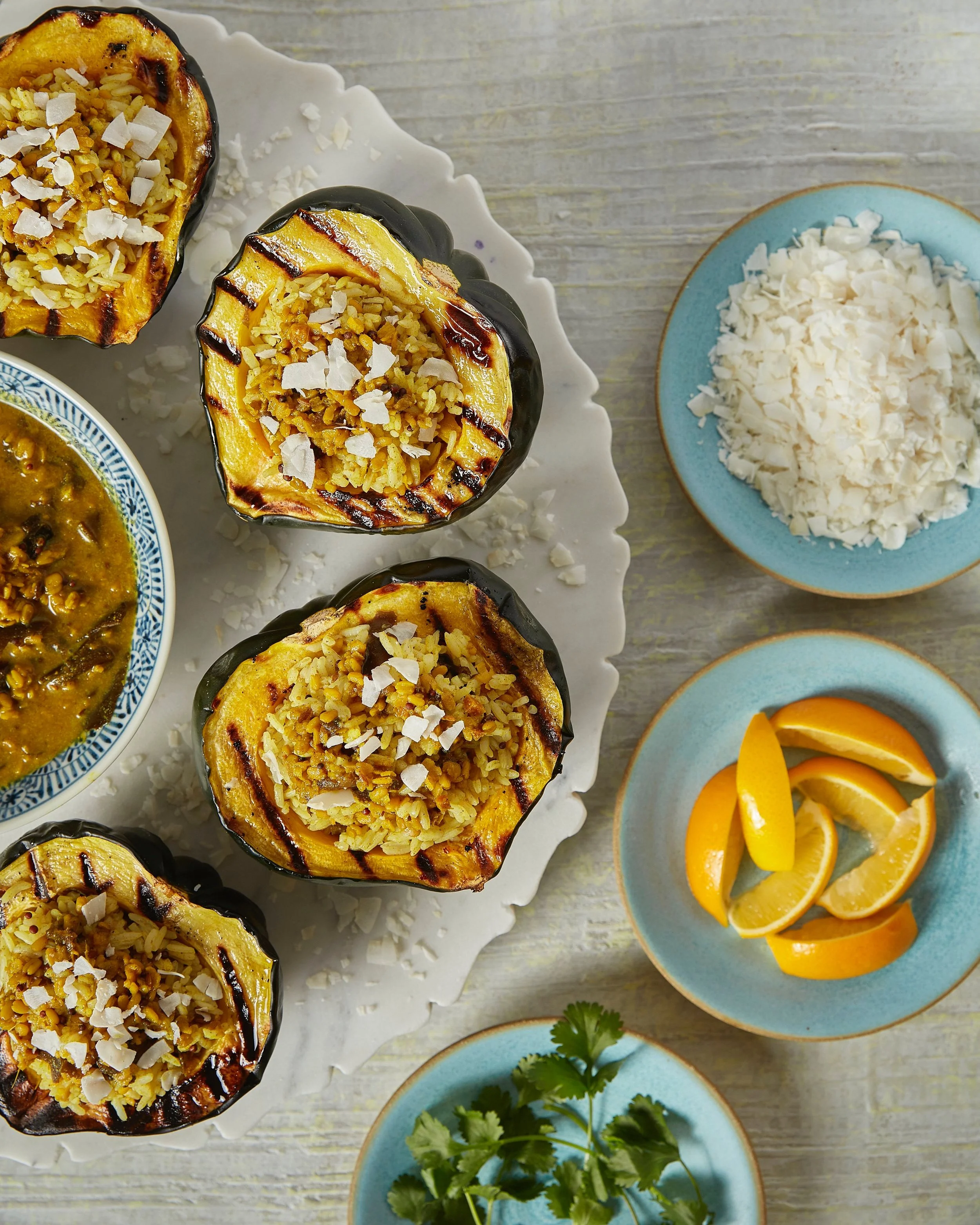Tamales and Tradition
Tamales, biscochitos and empanaditas are important holiday traditions for the Martinez family of New Mexico. Photography by Gabriella Marks.
To talk about the tamale is to talk about time writ large through food, to recognize interwoven histories across centuries, continents, and generations within families.
The word “tamale” is derived from the word tamalii, an Aztec word meaning, “wrapped food.” This compact creation of corn masa, filled with any combination of meat or vegetables and wrapped in corn husks, has satiated appetites dating as far back as 5,000 BC. Migrating north in the packs of Spanish soldiers, the tamale came to the land now known as New Mexico, where the hardiness and portability of a self-wrapped meal is perfect daily sustenance for the modern-day college student or grandma on the go.
In Santa Fe, you can find tamales every day of the year. Yet come the winter holidays, tamales serve as more than a mere meal. When made traditionally, this deceptively simple dish is labor and time intensive - an endeavor made easier with many hands. As Christmas draws near, families in New Mexico gather around the kitchen to form a
culinary assembly line, spreading masa, placing the filling, wrapping the corn husks, and steaming the finished tamales.
The tamalada, or tamale-making process can take an entire day, beginning with preparing the corn flour masa. Then there are the fillings, often but not limited to slow-cooked, fall-apart tender chicken or pork seasoned with a sauce made from dried red chili powder (Chimayo Red is a local favorite). Corn husks must be soaked until pliable to wrap and tie. The family circles around, making dozens at a time, to be enjoyed together for the holiday.
Although she grew up in Pojoaque, just north of Santa Fe in northern New Mexico, Theresa Martinez recalls making her first tamales in her early 20s with a friend. But she had eaten them throughout her childhood when the December tamale “harvest” was a family ritual marking the holidays - a time to make copious amounts of food to share
with family and neighbors alike. Theresa likens the custom to decorating the Christmas tree the day after Thanksgiving - moments that define how a family observes this special season.
Now a mother herself, Theresa has made sure that her daughters, Aurora Martinez-Rivera, 24, and Lola Martinez, 10, have been initiated into the making of the tamales, together with her mother, Lola Thompson, 72, and even her grandmother, Della Ryobal, 95.
In addition to tamales, [Theresa’s grandmother] is known for her biscochitos - a crisp lard- or butter-based cookie, flavored with cinnamon and anise. Theresa has tried time and again to reproduce those cookies, but she is convinced that there is something unique to her grandmother Della’s hands — part chemistry, part technique — that can’t
be reproduced by another.
Theresa feels deeply that for her daughters to carry on this tradition is integral to the future of her family so that her girls can teach their own children. It can be a thorny route to navigate, when personal expressions of gender and gender-specific roles, specifically in the kitchen, are constantly shifting and changing. And perhaps that’s where culinary traditions carry such significance. Theresa’s daughters may dress and dance and even speak far differently from their great-grandmother, but the smells of the tamales steaming and the cookies baking are shared senses that will always carry them back to the same place. That is what happens when four generations of women and girls gather together in the kitchen to make tamales as their ancestors have done before them.
Traditions are a pathway not only to the past but a wayfinding route for the future - as the family gathers around the table, telling stories, making the best kinds of messes, sticky fingers, stained aprons, and far-flung dough galore - memories are made for years to come.
Try the Martinez family recipes this holiday:
Story and Photography by Gabriella Marks / Styling by Robert Nachman / Food by Theresa Martinez and family
12 Month - 6 issue subscription












Indulge in the taste spring with this delicious Cherry Galette